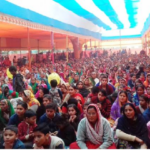For the Younger Indians, Marxism is a weird, extremist and extinct ideology of the past. Here’s how you can recover what is valuable in Marxist ideology.
Is Marxism relevant to envisioning India in the 21st century? The dominant answer in our times is a resounding ‘No’. This is a collective loss. I have never been a Marxist. My political socialization took place in Jawaharlal Nehru University, in opposition to the dominant Left student organizations and as a critic of the Marxist orthodoxy of the day. Yet I believe that those who think of a better world would overlook Marxism at their peril. Once you offload its excess baggage and detect its congenital defects, Marxist ideology is one of the essential resources for re-envisioning and reshaping India’s future.
That is not how it appears to the young, educated Indians today. For them Marxism is the same thing as Communism or Naxalism or Maoism, all captured under the umbrella term ‘Left’. Those who know a little more remember that it died with the collapse of the USSR. They associate Marxism with communist dictatorships, mass murders, State control of everything and bloated bureaucracy.
Closer home, people associate Marxism with the declining political fortunes of the official Left Front parties, their average record when they were in power, their stultified language and their failure to understand Indian society, the reality of caste, popular beliefs and Indian culture. In sum, for the Younger Indians, Marxism is a weird, extremist and extinct ideology of the past.
How does one recover what is valuable in this ideology? Here is a suggestion: if you wish to learn from the Marxist theory, look past the official communist ideology and its ideologues. Go back to a brilliant 19th century German thinker called Karl Marx. He was very 19th century, very German, very European. Yet, if you dust his books, you can retrieve a toolkit with which you can build your own radicalism for our time and place.
If you wish to learn from Marxist practice, develop a healthy contempt for the ruling communist establishments in India and abroad, and look away from party apparatchik and its cynical manoeuvres. It is best to focus instead on the millions of activists, party workers and revolutionaries who selflessly and tirelessly practice what they consider to be Marxism. Their beliefs may have little to do with official party doctrine or ideas of Karl Marx. Yet, their home-spun ideology can inspire and enlighten us.
Let us examine what we can learn from the Marxist ideology in three aspects: its utopia or the vision of an ideal society; its understanding of the past and present; and its suggested way to travel from the present to the ideal.
What is our goal?
If Marxism is at once morally charming and off-putting, it is mainly because Marxism, including Marx himself, has been very shy in using a moral language. Since Marx presented his reading of history as a science of society, he had to present his utopia in the garb of a forecast. Marx did not have much to say about what his ideal society, a communist society, would look like.
Much of what we today understand as communist system — government control of everything, absence of markets, lack of political freedom, dictatorship of the party — are blueprints developed by his followers, drawing upon some vague, poetic hints in Marx’s writings. Marx’s misfortune was not just that his hints were turned into a blueprint, but that this blueprint was actually realised in many parts of the world. The communist system exemplified by the USSR thus became the embodiment of the Marxist utopia, the flagship of the Marxist ideology, its unique selling point.
While much of the Left establishment continues to act as its apologist, history has now passed its harsh verdict on the Soviet system: this was no utopia. Not just because its political system was undemocratic and its economics deeply flawed, but also because the communist system was just one variant of a modern European urban-industrial society, enchanted with modernity, attached to large-scale production and its technology. Perhaps the most disappointing aspect of Marx’s utopia is its spiritual vacuum, its inability to speak to or even recognize our inner self and to come up with ethical norms about right and wrong in human conduct.
Some of this failure can be made up by the ethical practice of Marxists that, ironically, continues to be the biggest attraction for the Left. On ground, Marxism offers us the ideal of equality, an ideal that shines all the more brightly as the world becomes more and more unequal. It gives us the courage of conviction to take on capitalist inequalities, oppression and injustice in any form. Over time, Marxist practitioners have not limited themselves to fighting class injustice but also opposing imperialism, racism, patriarchy and caste injustice as well. In popular understanding, and in their own understanding, Marxists are those who stand with the poor, oppressed, and wretched of the earth. This spirit must be the cornerstone of an ideology of our times.
,
Where do we stand?
If Marxism is indispensable for any theorist of change in the 21st century, it is mainly because of its unique apparatus for making sense of the society. Above all, Marxism mandates political activists, reformers and revolutionaries to first understand the society that they seek to change. It offers a full-fledged theory, a science of society, that seeks to explain the past, the present and the future. The theory was so powerful that it became not just the staple of revolutionaries but also the base of what we today call social science.
With hindsight, we can see that many of the claims of the Marxist science of society were over-the-top, most of its predictions off the mark and its claims to monopoly over objective truth highly suspect. Its application to societies like India also showed another manufacturing defect of the Marxist theory: its deep Euro-centricity. Therefore, mechanical ways of grafting Marxist theories to the Indian context did more harm than good to the politics of the Left.
Yet Marx’s own writings can offer us deeper resources to overcome some of these flaws in the Marxist analysis of the present society. Recently, Sudipta Kaviraj has identified four principles in Marx’s thought that constitute his original contribution to social theory. More to the point, Kaviraj interprets these four principles in a way that can rescue Marxist theory for our times.
First, materialism need not be viewed as a crude insistence that ideas do not matter. Rather, it is an ethical lens that draws the world’s attention to material conditions of the poor and that can help us focus on environmental degradation today.
Second, the idea of historicity, meaning things that appear natural to us today are constructs of history, that they could have been very different. Kaviraj argues that this core insight can be used not just to travel across time, but also across spaces and be used to overcome the Euro-centric bias in the Marxist thinking.
Third, the concept of class can be understood in a generic sense to understand any social grouping including caste.
Fourth, the principle of contradiction applies not just to capitalism but to the structure of modernity; it alerts us to the fact that every modern structure builds within itself pulls contrary.
You may or may not agree with Marx’s or the Marxist analysis of society, yet you cannot but use the template of analysis that it provides.
How do we proceed?
If Marxism is the most powerful theory of action in our times, it is not because it is the most successful theory. In retrospect, it is fair to say that most revolutions in the last century did not obey the Marxist theory. The Marxist theory of when, what and how of a revolution tended to overestimate objective factors and underestimate the contingency of politics. The history of the Indian communist movement is a testimony to the often tragic — and sometimes comic — consequences of this mistaken yet confident theory of action.
The other deeply disturbing aspect of the Marxist theory of action is its amoralism, its indifference to the nature of means adopted to achieve the given ends. This is sometimes encouraged a mindless cult of violence among the political activists inspired by Marxism.
Yet, Marxism must be the starting point for any theory of action in our times. Marx was not the originator of revolution or its theory, but he did revolutionize the idea of revolution. The idea that there is nothing given about the world that we live in, that transformation is bound to take place and that fundamental social transformation can be planned in sync with the logic of history is Marx’s contribution to the reshaping of the world we live in.
It is easy to damn Marxist ideology in today’s world. Yet critics of Marxism, including the present author, owe more to Marxism than they are willing to admit or are even aware. In that sense we are all Marx’s children.
By- Yogendra yadav







More Stories
Will we soon become Vishgurus by selling our education and childhood?
Kenya: What I saw at Nairobi will remain unforgettable.
Trinidad trip: Whatever I saw, my heart was filled with pride.